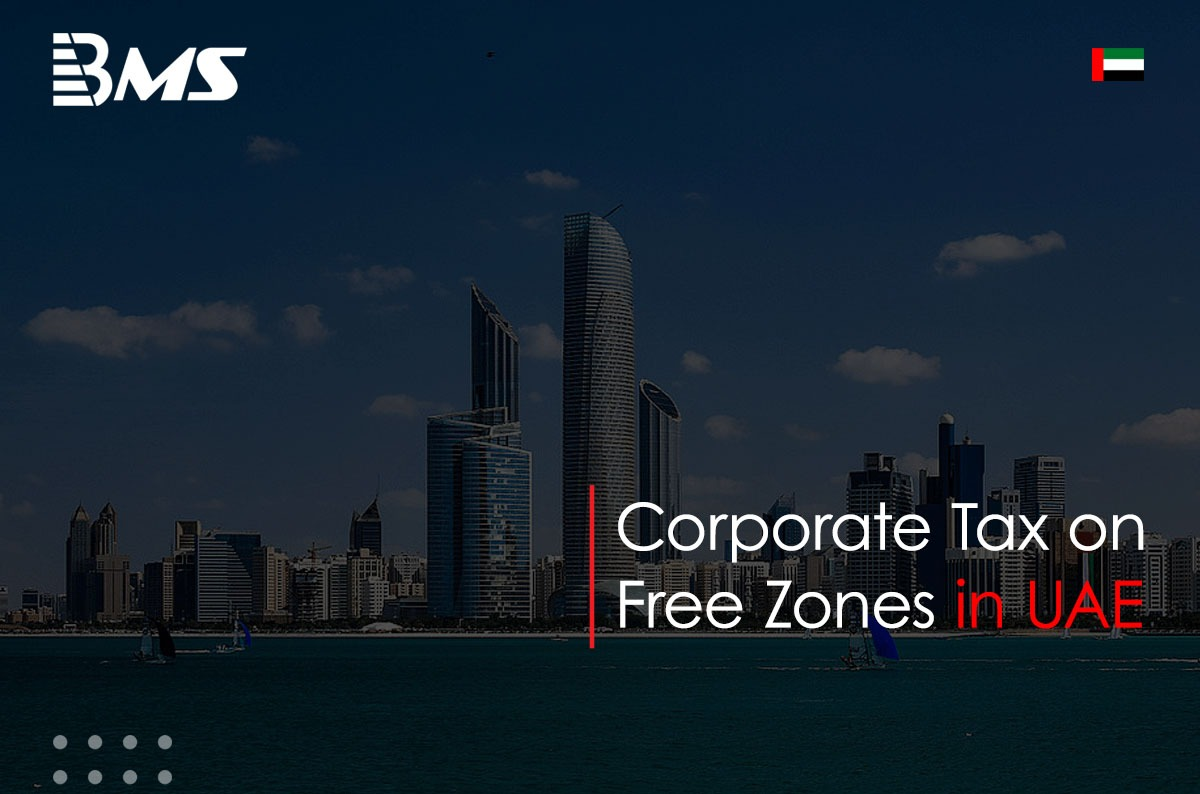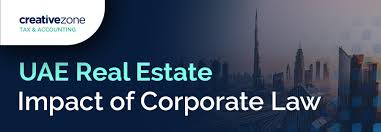Now Reading: Corporate Tax: Powerful Impact on Free Zone Real Estate in UAE
-
01
Corporate Tax: Powerful Impact on Free Zone Real Estate in UAE
Corporate Tax: Powerful Impact on Free Zone Real Estate in UAE

Table of Contents
The introduction of the 9% Federal Corporate Tax (CT) in the UAE, effective for financial years beginning on or after June 1, 2023, has brought a new layer of complexity for businesses, particularly those operating within the nation’s Free Zones. While Free Zones have historically offered significant tax incentives, their real estate activities now require a careful assessment to determine eligibility for the preferential 0% CT rate.
Understanding the Free Zone Corporate Tax Regime
The UAE Corporate Tax Law aims to ensure that Free Zone companies continue to play a vital role in the economy while aligning with international tax standards. The core principle is that a Qualifying Free Zone Person (QFZP) can benefit from a 0% Corporate Tax rate on its “Qualifying Income.” Any income that does not meet the criteria for “Qualifying Income” will be subject to the standard 9% Corporate Tax rate.
To be considered a QFZP, a Free Zone company must meet several stringent conditions:
- Maintain Adequate Substance: The company must conduct its core income-generating activities within the Free Zone, with adequate assets, a sufficient number of qualified employees, and appropriate operating expenditures.
- Derive Qualifying Income: The majority of its income must come from “Qualifying Activities” and from transactions with other Free Zone persons.
- Not Elect for Standard Tax: The Free Zone Person must not have opted to be subject to the standard 9% Corporate Tax rate.
- Comply with Transfer Pricing Rules: All transactions with related parties must adhere to the arm’s length principle and proper transfer pricing documentation must be maintained.
- Maintain Audited Financial Statements: The QFZP must have audited financial statements in accordance with International Financial Reporting Standards (IFRS).
- Meet De Minimis Requirements: Non-qualifying revenue must not exceed 5% of total revenue or AED 5 million, whichever is lower.
Failure to meet any of these conditions can lead to the Free Zone entity losing its QFZP status and being subject to the 9% CT rate on its entire taxable income for the relevant tax period and potentially for the subsequent four tax periods.
Impact on Free Zone Real Estate Companies

The application of Corporate Tax to real estate activities within Free Zones is nuanced, with specific rules determining whether income qualifies for the 0% or 9% rate.
- Income from Commercial Property within the Same Free Zone:
- 0% CT Rate: Income derived from the rent of commercial real estate located in a Free Zone, when leased by a QFZP to another Free Zone Person who is the “Beneficial Recipient” of the services or goods, is considered Qualifying Income and is subject to the 0% Corporate Tax rate. This encourages intra-Free Zone commercial activity.
- Beneficial Recipient: This implies that the recipient Free Zone Person must be the ultimate beneficiary of the property’s use, not merely an intermediary.
- Income from Commercial Property leased to a Mainland or Non-Free Zone Person:
- 9% CT Rate: If a QFZP leases commercial property located in a Free Zone to a mainland UAE entity or any non-Free Zone Person, the income generated from this transaction is not considered Qualifying Income and will be subject to the standard 9% Corporate Tax rate.
- Exclusion from De Minimis: Importantly, revenue from such transactions (commercial property in a Free Zone leased to a non-Free Zone Person) is excluded when calculating the “De Minimis” requirement. This means it won’t, by itself, disqualify the Free Zone entity from QFZP status, but the income itself will be taxed at 9%.
- Income from Non-Commercial Property in a Free Zone:
- 9% CT Rate: Income derived from any immovable property located in a Free Zone that is not classified as “Commercial Property” (e.g., residential properties, hotels, serviced apartments, or any accommodation-related property) is not considered Qualifying Income regardless of the tenant’s status. This income will be subject to the 9% Corporate Tax rate.
- Exclusion from De Minimis: Similar to commercial property leased to non-Free Zone persons, this income is also generally excluded when calculating the “De Minimis” requirement.
- Income from Immovable Property Outside the Free Zone:
- 9% CT Rate: Any income derived by a Free Zone entity from immovable property located outside the Free Zone (e.g., on the UAE mainland or in a foreign country) is considered non-qualifying income and will be subject to the 9% Corporate Tax rate.
- Included in De Minimis: Unlike the previous two cases, income from immovable property outside the Free Zone is typically included in the “De Minimis” calculation. This means if a Free Zone company generates significant income from mainland properties, it risks losing its QFZP status entirely.
- Capital Gains from Property Sales:
- Capital gains derived from the sale of immovable property by a Free Zone company will generally follow the same tax treatment as rental income, depending on the nature and location of the property and the transacting parties. If the property generated 0% qualifying income, the capital gain might also qualify for 0%. If it generated 9% taxable income, the capital gain would typically also be taxed at 9%.
- Domestic Permanent Establishment (PE):
- If a QFZP has a branch or other form of presence outside its Free Zone in the UAE (e.g., a mainland branch), this creates a “Domestic Permanent Establishment.” Income attributable to this Domestic PE will be subject to the 9% Corporate Tax rate, calculated as if the PE were a separate and independent entity. This income will not impact the QFZP status or the “De Minimis” test for the Free Zone entity’s qualifying income.
Compliance and Strategic Considerations

For Free Zone real estate companies, the new corporate tax regime necessitates proactive planning and meticulous compliance:
- Structure Review: Companies should review their existing legal structures and business models to determine if they meet QFZP conditions, especially concerning their real estate holdings and transactions.
- Income Segregation: It is crucial to accurately segregate “Qualifying Income” from “Non-Qualifying Income” to ensure correct tax calculation. This requires robust accounting and record-keeping systems.
- Substance Requirements: Developers and investors in Free Zones must ensure they meet the economic substance requirements, demonstrating genuine operations within the Free Zone to qualify for the 0% rate.
- Transfer Pricing: Transactions between related entities must adhere to arm’s length principles, and proper transfer pricing documentation is mandatory.
- Registration and Filing: All Free Zone companies, even those expecting 0% tax, are required to register for Corporate Tax and file annual tax returns.
- Professional Advice: Engaging tax advisors experienced in UAE Corporate Tax and Free Zone regulations is essential to navigate the complexities, optimize tax positions, and ensure ongoing compliance.
In conclusion, while UAE Free Zones continue to offer attractive incentives, the 9% Corporate Tax significantly alters the landscape for real estate companies. A nuanced understanding of “Qualifying Free Zone Person” status, “Qualifying Income” definitions, and specific rules for immovable property is paramount for Free Zone real estate entities to maintain tax efficiency and ensure compliance in the evolving UAE tax environment.
WATCH MORE: https://www.youtube.com/watch?v=JfWtG32KTG4
READ MORE: UAE Corporate Tax: Powerful Impact on Real Estate Investors & Developers






















